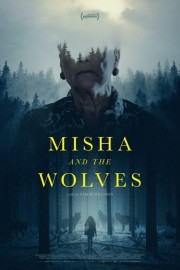Misha and the Wolves
**Seen at the 2021 Sundance Film Festival.
It kind of blows me away that I never heard about this story before. There’s a part of me that thinks that I did, but one would think you would remember hearing about how a woman told a story of tremendous bravery and survival during the Holocaust, only to be shown as a fraud after a multi-million dollar lawsuit, disgrace, and the release of a movie based on her memoir. Oh, and there’s still more after this that takes the story in even crazier directions.
Sam Hobkinson brings us the story of Misha Defonseca with a documentarian’s sturdy eye for composition and editing, and an investigator’s drive to discover the truth, and it is a riveting 90 minutes of movie. Misha is an old woman now, who in the ’80s moved to Massachusetts with her husband and animals, and found a community there. One day, she was attending Temple in town, and she told a remarkable story of how, when she was 7, she was separated from her Jewish parents, and sent to live with a family in Belgium. She needs to find her family, however, so she departs on a journey in the forest where she is come upon by wolves, and she survives. There is stunned silence in the crowd. The owner of a small publishing company, Jane Daniel, hears the story and signs Defonseca to write of her experiences. What happened over the next decades is enough to make a compelling story in its own right, which Hobkinson does with precision and empathy.
Any lies about something as horrific as the Holocaust are going to be taken with revulsion; that Defonseca’s went as far as they do before they were exposed as a hoax and fraud is a failure on many accounts. The original sin is Misha’s for telling the life, but Jane Daniel must take some of the blame, as well, because, as the publisher, she did not do enough to fact-check and make sure of the validity of Misha’s story before printing it. Even though she was one of the ones who ended up exposing it at the end, she did so only out of self-preservation rather than preserving the truth, as she was facing a massive settlement that would wipe out her business. Hearing Daniel discuss the way she went about putting the pieces of the hoax together, including having an actual Holocaust survivor in Belgium do research for her, is a story of breathtaking survival as well, even though others were helping her; usually, though, we only survive through the assistance of others- just one more element in Misha’s story that makes it feel like it’s built on a less-than-sturdy foundation.
There’s one final twist in Misha’s story, however, that makes “Misha and the Wolves” not just the exploration of a hoax, but gives us insight on why the hoax might have happened in the first place. The truth being revealed, it’s now up to the media to fill in the blanks about her life, leading us to a fuller understanding of who she was, who her family was, and what happened that might have traumatized her so profoundly in life to even consider making something like this up. The truth doesn’t make what Misha did any less harmful, but it shows that, while she wasn’t the victim she claimed to be, her life was not full of happiness either; in her childhood, choices outside of her control ostracized her forever. The actions of others then do not excuse her behavior later in life, though, but in discovering the truth, we might see why one form of victimhood was more palatable for her to believe, and tell, than the real one. Even the one person who Misha’s lie hurts the most because they disrespect her truth can’t help but feel that way, and find some level of forgiveness in the end.










